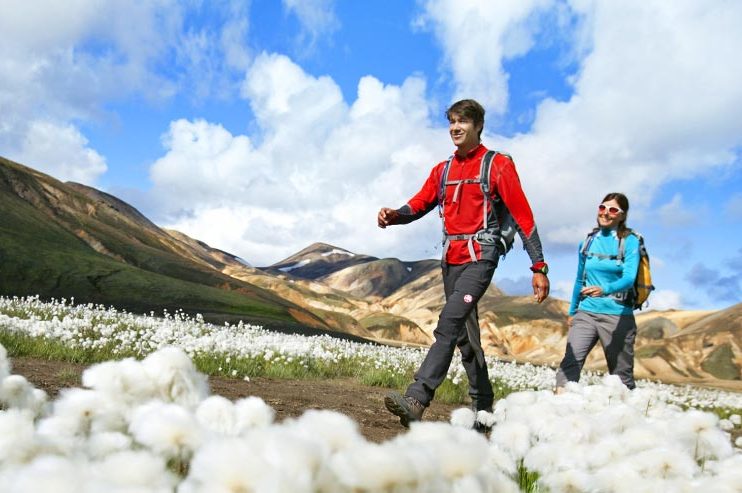Skift Take
The term "experiential travel" is so overused these days that it's almost become cliche. But 45 years ago, Richard Bangs did experiential travel before experiential travel was cool. When he inaugurated Sobek to specialize in worldwide adventure and cultural travel, the concept was pioneering.
Mountain Travel Sobek has been specializing in exclusive experiential travel for nearly half a century, rushing in to new frontiers and introducing travelers to novel experiences before doing so was considered attractive to high-end travelers.
In 1969, Mountain Travel opened up shop, specializing in peak adventures. Then, in 1973, Richard Bangs, a one-time river rafting guide, started Sobek. Given that the two companies were running along parallel tracks, a merger was enacted in 1991, creating Mountain Travel Sobek.
During the course of its decades in business, according to Bangs, “Sobek (and later MTS) has specialized in being on the front edge of new travel opportunities, opening up areas and activities that are now considered standard.” The company organized the first group trips for Americans to places like China, Easter Island, North Korea, and Saudi Arabia, among other places, and introduced mountain trekking trips in Nepal and river rafting rides around the world.
In fact, Sobek gets its name from Bangs’ first trips on tributaries of the Nile. He noted the crocodile-infested waters, and soon learned that there was an ancient Egyptian god who granted safe passage on these dangerous waterways. His name was Sobek.
The company counts among its clients people like Bill Gates and Jeff Bezos. These ultra-high net worth individuals have special trips designed just for them, like ice camping in Antarctica (that was Gates). Aside from planning free independent travel (FITs), the company also offers scores of scheduled high-end soft (mostly) adventure and cultural group trips.
Skift talked to Bangs about the evolution of exclusive experiential travel during the past fifty years.
Skift: When you started your company in the 1970s, experiential travel wasn’t a thing, was it?
Richard Bangs: No, there was very little in the way of experiential travel. During the late 1960s and the 1970s, airfares were very high. Almost all overseas travel was either to a beach — a horizontal experience — or going through Europe on a bus. It was about exploring the past rather than making your own history, like it is today. Nowadays, travelers want something challenging. They want to put themselves in the center of their own plays. You’re the hero of your own story.
Skift: When did Americans start seeking out more adventure on their overseas trips?
Bangs: By the 1980s, Sobek became viable after being in business for a decade. I would attribute that to the fact that historically and culturally, a number of things were occurring confluently to make it possible. Airlines were deregulated in the late 1970s, which brought down airfares. The political smoothing of some of the world’s borders was happening. Prior to the 1980s, about one-third of the world was not open to Americans — there was the Bamboo Curtain in China, the Iron Curtain over Russia and Eastern Europe, and places like Angola and Mozambique were also off-limits. But little by little, the borders were melting, making it possible to explore everywhere. In essence, the Baby Boomers became the first experiential travelers — although it wasn’t the entire generation. Rather, there were the pioneers in that generation, who were considered outliers at the time.
Skift: Then, in the 1990s, in comes the Internet…
Bangs: The Internet changed the game. For us as a company, we could use the Internet to more fully convey the experiences travelers would have, making trips seem more enticing and real. What once may have seemed forbidding and foreign, suddenly became familiar. So, it opened adventure travel up to a broader group and incentivized more people to travel.
Also, the Internet broke down the barriers of misconception. Back then, it was easy to paint rogue countries as the axis of evil. But once the filters of information came down, it was easier for people to get the bigger picture.
In the 2000s, social media has led to a higher demand for travel than we’ve ever seen. It’s easier to discover more information and to speak to travelers who have been to these places. Plus, people see what their friends are doing and they feel like, if he or she can do that, I can do that.
Skift: What’s next?
Bangs: We just finished producing a television program about New Guinea with a virtual reality component. VR is a very powerful tool, allowing people to get closer to the experience. You wonder if it will get to the point where people can have a chip implanted that will take them by VR anywhere in the world without jet lag. But I don’t see that happening. I don’t see VR as a substitute for travel. The more high-tech things become, the more high touch people desire — they want an authentic experience, one experienced in all dimensions.
The Daily Newsletter
Our daily coverage of the global travel industry. Written by editors and analysts from across Skift’s brands.
Have a confidential tip for Skift? Get in touch
Tags: adventure travel, luxury
Photo credit: A promotional image for Mountain Travel Sobek's hiking trip to northern Iceland. The company was a pioneer of experiential travel. Mountain Travel Sobek
